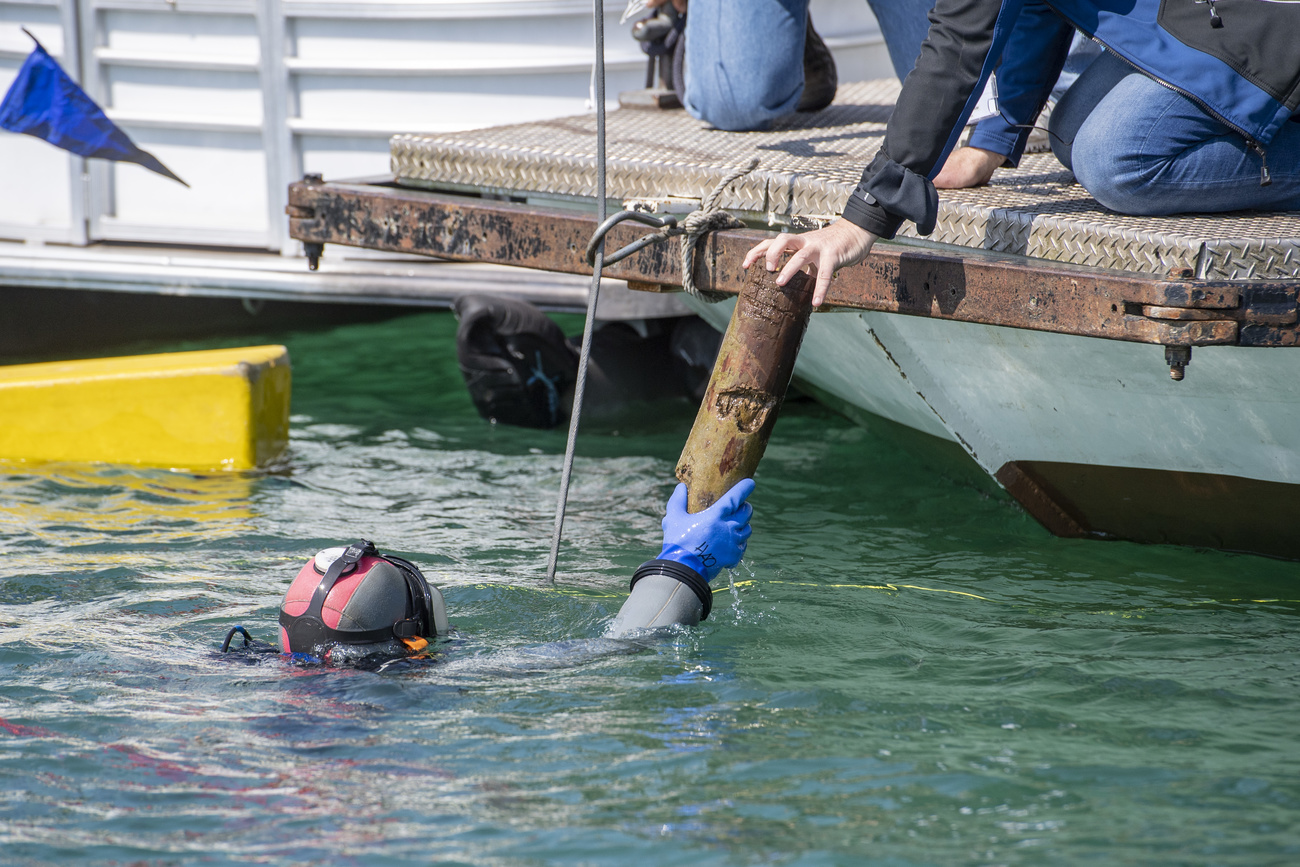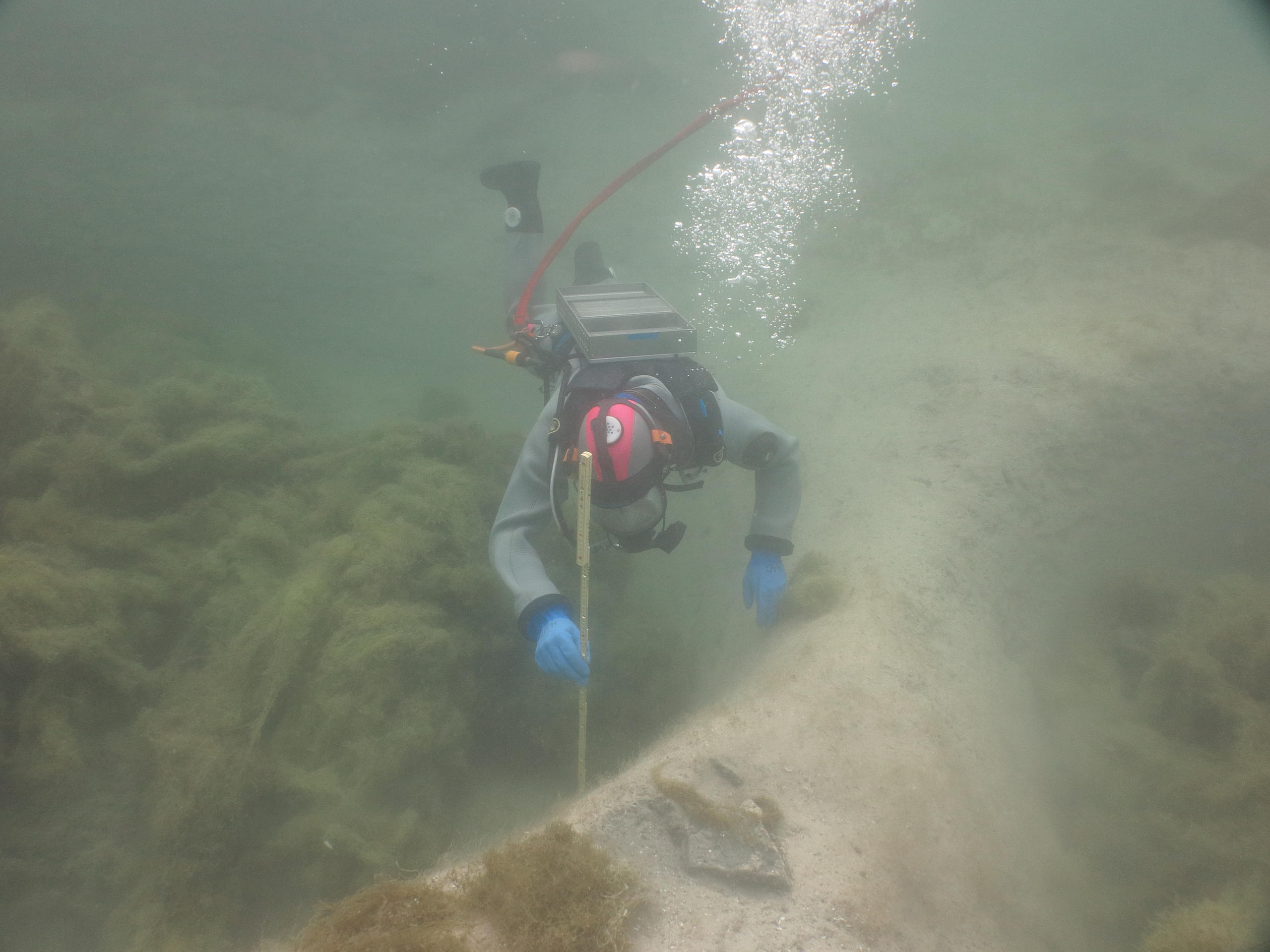
Bronze Age village found under Swiss lake

Archaeologists have, for the first time, found traces of a Bronze Age lakeside village under the surface of Lake Lucerne. The find shows that the city of Lucerne area was already populated 3,000 years ago.
This is 2,000 years earlier than previously thought, researchers said on Thursday.
Traces of a pile dwelling (or stilt house) village came to light while laying a pipeline in the natural harbour area. The remnants were found by underwater archaeologists around four metres below the water surface.

“This finally confirms the theory that, in earlier times, the Lucerne lake basin was a suitable settlement area,” a canton Lucerne statementExternal link said.
Proof of settlement
Archaeologists had been looking for proof of settlement for some time, but had been hampered by a thick layer of mud at the bottom of the lake. Work on the pipeline however revealed around 30 prehistoric wooden piles or stilts and five pieces of pottery.
The wood and pottery have been tested and dated to the late Bronze Ages, so around 1,000 years BC.

The find coincides with the 10th anniversary of prehistoric lakeside pile dwellings in Alpine countries – including in Switzerland – being given Unesco World Heritage Site status.
In all, 111 of the most important sites in six countries have gained the label. Of these, 56 are in SwitzerlandExternal link.
Unesco describes the groupExternal link of dwellings as “one of the most important sources for the study of early agrarian societies in the region”.

More
Life on stilts

In compliance with the JTI standards
More: SWI swissinfo.ch certified by the Journalism Trust Initiative















![The four-metre-long painting "Sonntag der Bergbauern" [Sunday of the Mountain Farmers, 1923-24/26] had to be removed by a crane from the German Chancellery in Berlin for the exhibition in Bern.](https://www.swissinfo.ch/content/wp-content/uploads/sites/13/2025/12/01_Pressebild_KirchnerxKirchner.jpg?ver=a45b19f3)













You can find an overview of ongoing debates with our journalists here . Please join us!
If you want to start a conversation about a topic raised in this article or want to report factual errors, email us at english@swissinfo.ch.